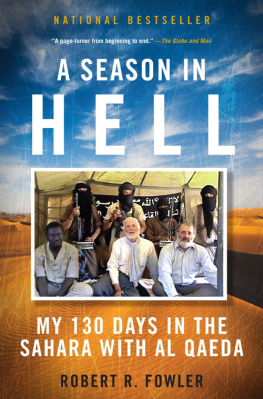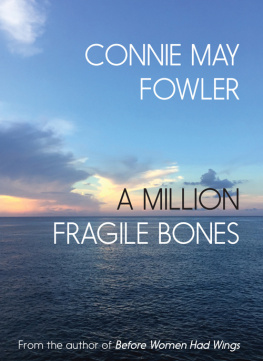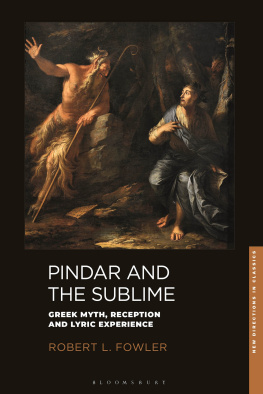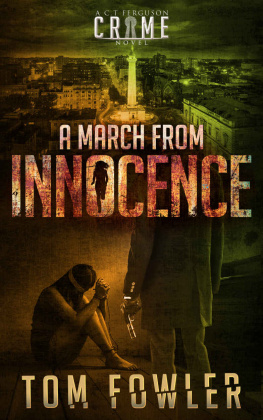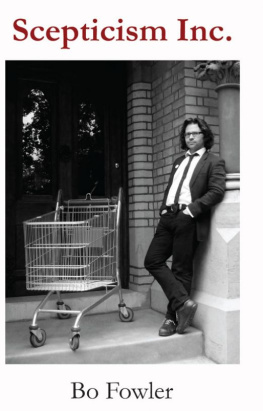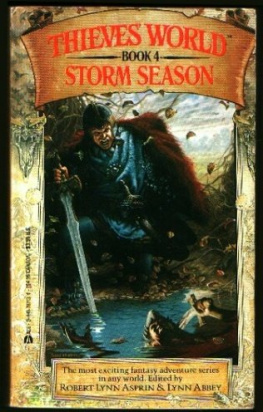Robert Fowler - Season in Hell
Here you can read online Robert Fowler - Season in Hell full text of the book (entire story) in english for free. Download pdf and epub, get meaning, cover and reviews about this ebook. year: 2012, publisher: Harper Collins Canada, genre: Non-fiction. Description of the work, (preface) as well as reviews are available. Best literature library LitArk.com created for fans of good reading and offers a wide selection of genres:
Romance novel
Science fiction
Adventure
Detective
Science
History
Home and family
Prose
Art
Politics
Computer
Non-fiction
Religion
Business
Children
Humor
Choose a favorite category and find really read worthwhile books. Enjoy immersion in the world of imagination, feel the emotions of the characters or learn something new for yourself, make an fascinating discovery.
- Book:Season in Hell
- Author:
- Publisher:Harper Collins Canada
- Genre:
- Year:2012
- Rating:4 / 5
- Favourites:Add to favourites
- Your mark:
- 80
- 1
- 2
- 3
- 4
- 5
Season in Hell: summary, description and annotation
We offer to read an annotation, description, summary or preface (depends on what the author of the book "Season in Hell" wrote himself). If you haven't found the necessary information about the book — write in the comments, we will try to find it.
Season in Hell — read online for free the complete book (whole text) full work
Below is the text of the book, divided by pages. System saving the place of the last page read, allows you to conveniently read the book "Season in Hell" online for free, without having to search again every time where you left off. Put a bookmark, and you can go to the page where you finished reading at any time.
Font size:
Interval:
Bookmark:
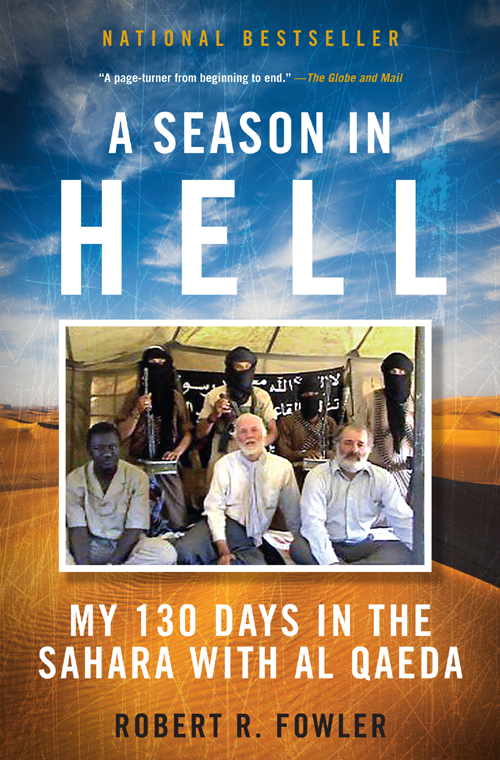
IN HELL
M Y 130 D AYS IN THE S AHARA WITH A L Q AEDA
ROBERT R. FOWLER

For Mary, whose love, drive, and spirit brought me back
For my wonderful girls, Linton, Ruth, Antonia, and Justine,
and their families, who made coming home so important
For Louis, without whom I would likely not have come through
For Presidents Tour and Compaor, their brave negotiators,
and all those in the Canadian government who worked tirelessly
and effectively to make it possible
For all those who cant go home
It is an ancient Mariner,
And he stoppeth one of three.
By thy long grey beard and glittering eye,
Now wherefore stoppst thou me?
The Bridegrooms doors are opend wide,
And I am next of kin;
The guests are met, the feast is set:
Mayst hear the merry din.
He holds him with his skinny hand,
There was a ship, quoth he.
Hold off! Unhand me, grey-beard loon!
Eftsoons his hand dropt he.
He holds him with his glittering eye
The Wedding-Guest stood still,
And listens like a three years child:
The Mariner hath his will.
The Wedding-Guest sat on a stone:
He cannot choose but hear;
And thus spake on that ancient man,
The bright-eyed Mariner.
Samuel Taylor Coleridge, The Rime of the Ancient Mariner
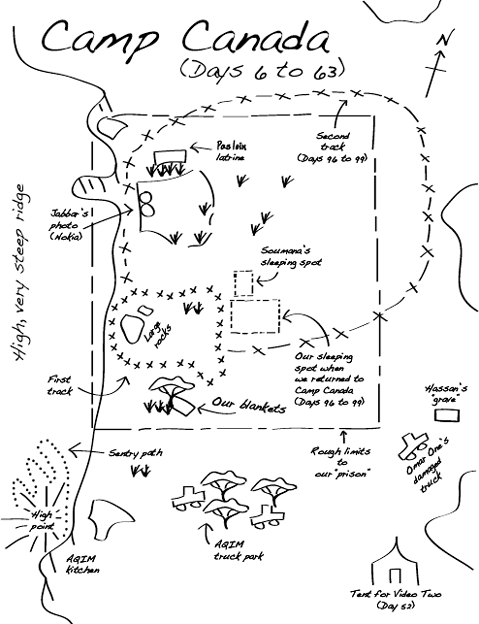
Our Descent into Hell
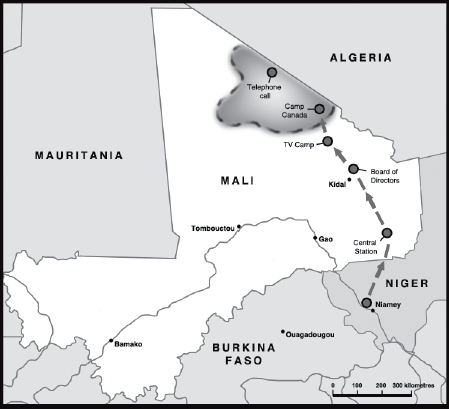
Key Dates and Locations
15 December 2008: Central Station
16 December 2008: Board of Directors
17 December 2008: TV Camp
19 December 2008 to 14 February 2009: Camp Canada
10 March 2009: Presumed site of telephone call
Legend
 our presumed route
our presumed route
 approximate area of confinement
approximate area of confinement
Countries of the Sahel
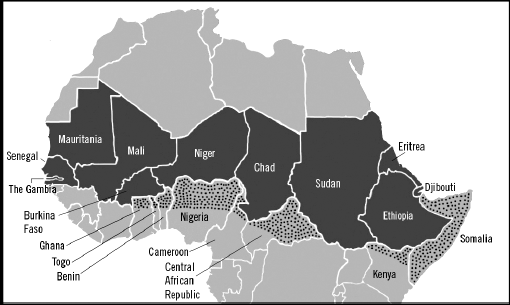
The Sahel (shown in dark grey) is a 7,000-kilometre band of instability that Al Qaeda considers fertile ground for further expansion. It stretches across the widest part of Africa, from Mauritania on the Atlantic to Djibouti on the Indian Ocean. A number of surrounding countries (such as Somalia and Nigeria) have been similarly beset by climate change, desertification, and ethnic or religious confrontation. The dotted areas denote those regions most affected.
T his is a personal story of a dramatic 130-day period in my life and despite my persistent use of the first person plural, I trust the reader will understand that at no point am I purporting to speak for my friend and fellow hostage, Louis Guay.
Louis decided not to play a role in producing this account. As I submitted this manuscript, he was still a public servant in the Canadian Department of Foreign Affairs and International Trade (DFAIT), and he continued to be governed by the obligations that bound him in that capacity. I must make clear, therefore, that all the reflections and opinions in this memoir, indeed all the recollections, are mine alone. I have sought to limit the extent to which my narrative encroaches on Louis privacy and that of his warm and supportive family. I apologize to all the Guays for any transgressions in this regard. They will understand that half of this story is necessarily Louis and, therefore, telling it without regular and repeated reference to him, his steadfastness, stalwart support, and fine friendship would simply be impossible.
This account of extreme camping in the desert in dramatically life-threatening circumstances will describe what it was like and perhaps allow readers to come to their own conclusions regarding the issue that often seems to be on their minds: how would I fare in such circumstances? Most people, I suspect, would do a lot better than they assume.
This book is not, though, an academic treatise on Al Qaeda or Islamic fundamentalism and their catalytic role in causing what is ever more clearly a clash of civilizations. Nor will it be a primer on how Al Qaeda in the Islamic Maghreb (AQIM) can become better kidnappers. As a result I will refrain from offering detailed comments on what the jihadists did or did not do well, on how they might have done better or, more generally, provide information that could permit them to prosecute their jihad (holy war) more effectively. Some aspects of this narrative may indeed seem to offer such guidance but have been included only where I know that they already possess such understanding. In the same vein, I have sought to avoid writing anything that might cause a future hostage to spend a moment longer in captivity than would otherwise be the case.
With these caveats, and while it is still reasonably fresh in my mind, I hope the reader will find this an informative account of a very particular though by no means unique experience. Many hostages have endured far longer and tougher trials than our four and a half months as Al Qaeda captives. Indeed, as we lay day after day under the unrelenting Sahara sun I recalledtrepidation quickly becoming naked terrorthe long, harsh ordeals of Terry Anderson, Terry Waite, Marc Gonsalves and his colleagues, Ingrid Betancourt, the staff of the American Embassy in Iran, and so very many others. And, of course, I was well aware that many had been killed or died in captivity.
A couple of months before our capture, Louis and I discussed with Isabelle Roy (then Canadas Ambassador to Mali) the eight-month long nightmare that Andrea Kloiber and Wolfgang Ebner, two Austrian tourists captured in Tunisia, lived as prisoners of AQIM. They were released just before our abduction by the same jihadi organization in late 2008. As we wondered whether there could be a happy ending to our saga, we were also well aware that other Canadians held hostage in other parts of the world were suffering a similar or worse fate.
We knew that the BBCs Alan Johnston had been held for 114 days in Gaza, two years previously, by the Army of Islam, but we did not yet know of the wrenching tale of David Rohde, the New York Times reporter who escaped from the clutches of the Taliban just after our release and made his way to freedom after more than seven months in the mountains of Afghanistan and Pakistans tribal areas, a story he and his wife tell so compellingly in their book A Rope and a Prayer. Ever-present in my mind, however, was the execution of Daniel Pearl, another brave reporter, held in similar circumstances by Al Qaeda in Pakistan.
A word on language: the languages spoken by the thirty-one members of the AQIM group that held us were predominantly Arabic and Berber, in what we took to be a variety of dialects, including Tamasheq, the language of the Sahara and of the Tuareg. Neither Louis nor I speak Arabic beyond a few stock phrases and words, and our captors had, for obvious reasons, no interest in having us learn their languages. Thus we spoke with our kidnappers in French. In this account, I have translated almost everything into English, using words and expressions that best convey both the meaning and what I took to be the intent of the speaker.
Font size:
Interval:
Bookmark:
Similar books «Season in Hell»
Look at similar books to Season in Hell. We have selected literature similar in name and meaning in the hope of providing readers with more options to find new, interesting, not yet read works.
Discussion, reviews of the book Season in Hell and just readers' own opinions. Leave your comments, write what you think about the work, its meaning or the main characters. Specify what exactly you liked and what you didn't like, and why you think so.

